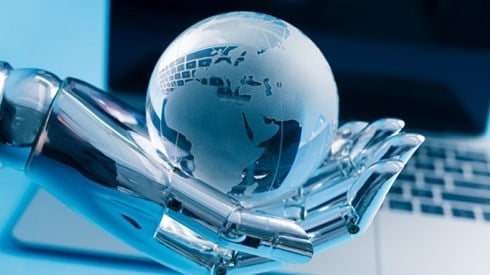Managing the Workforce in the 4th Industrial Revolution

December 17, 2019

A recent study1 identified key strategies for business leaders and human resource executives to manage people and work in the fourth industrial revolution (4IR).
As part of the study, chief human resources (HR) officers and experts were asked to identify emerging challenges arising from the future of work and a range of potential interventions to address them.
"The fourth industrial revolution and its significant implications for the future of work present the HR profession with a unique opportunity to redefine its mandate and further advance its function," said Ravin Jesuthasan, managing director, talent and rewards, Willis Towers Watson, and study co-author. "HR can accomplish this by shifting from being a steward of employment to being one of work while ensuring the continued relevance of the global workforce through the creation of a continuous learning and reskilling culture."
According to the study, the 4IR is blurring the lines between people and technology, fusing the physical, digital, and biological worlds. The impact of these changes on the way people work and the way businesses produce value will span all industries, economies, and societies and redefine the future of work. The study indicates businesses and governments must adapt to these changes and support the workforce transition. If managed well, the future of work may be one where many more people are able to fulfill their full potential.
The study identifies six imperatives that business leaders, partnering with their human resources counterparts, will need to implement to successfully meet future challenges.
- Developing new leadership capabilities for the 4IR
- Managing the integration of technology in the workplace
- Enhancing the employee experience
- Building an agile and personalized learning culture
- Establishing metrics for valuing human capital
- Embedding inclusion and diversity
"As the Fourth Industrial Revolution transforms work and the workforce, HR professionals must respond to proactively manage the future of work. HR leaders will increasingly need to develop skills and understanding of data analytics and technology, as well as supporting others to develop those skills to encourage employee experience and productivity," said Saadia Zahidi, managing director, World Economic Forum, and head of the Forum's Centre for the New Economy and Society.
The study covers three sections. The first examines why the 4IR creates an impetus for transformation in people strategies and HR practices. The second outlines how business and HR leaders can respond through the six imperatives with practical models and case studies. The third describes how organizations are responding to the need for change with examples of emerging roles, technologies, and critical skills for the future of HR.
- The study, "HR 4.0: Shaping People Strategies in the Fourth Industrial Revolution," was conducted in partnership with the World Economic Forum, Saudi Aramco, Unilever, and Willis Towers Watson.
December 17, 2019




